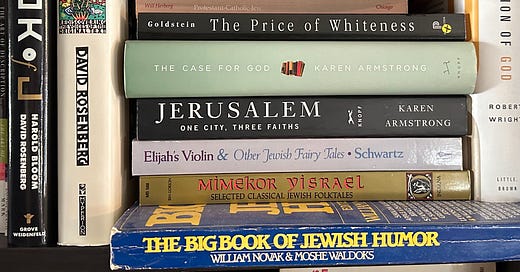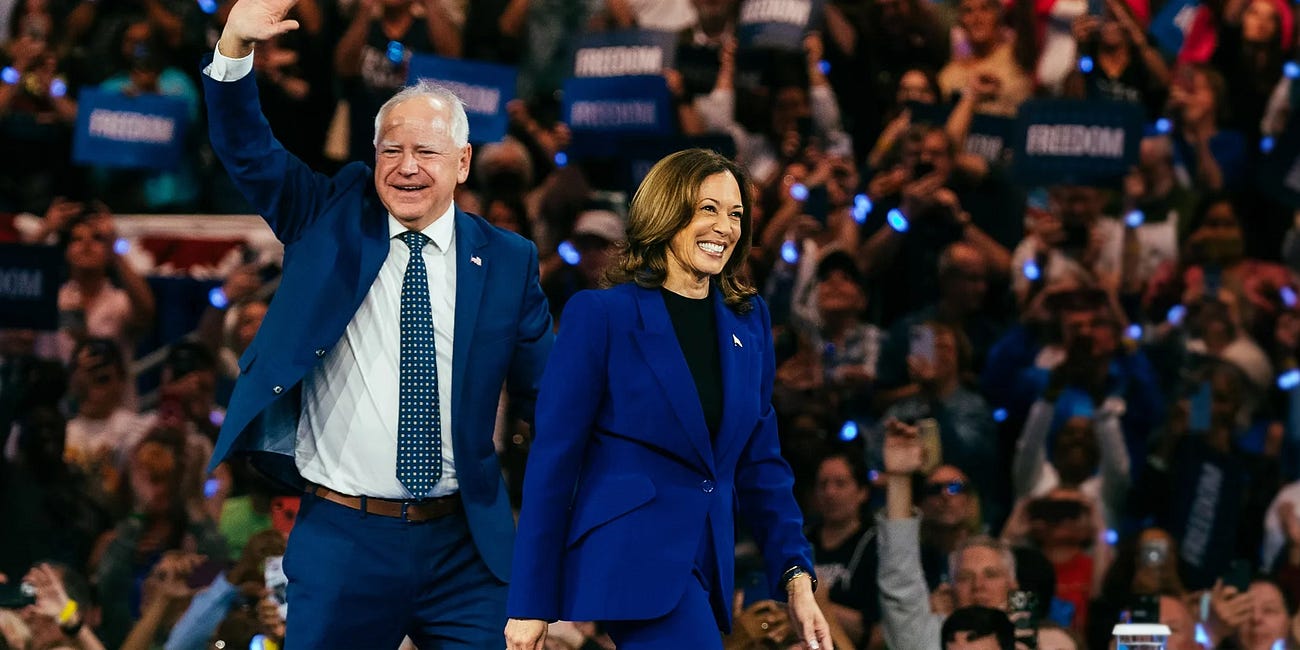Saturday Reading List: On Being "Despairalyzed"
Some Notes on Doubt, Harris, Palestine, and the Fear of the Future
I try to live with a sense of awe, with an understanding that the world is far bigger than our understanding of it at any moment. Rabbi Abraham Joshua Heschel might describe my attitude as an effort to retain a sense of “radical amazement.”
Heschel argued in Man Is Not Alone that
Wonder rather than doubt is the root of knowledge. Doubt comes in the wake of knowledge as a state of vacillation between two contrary or contradictory views; as a state in which a belief we had embraced begins to totter. It challenges the mind’s accounts about reality and calls for an examination and verification of that with is deposited in the mind.1
Knowledge, if I am reading Heschel correctly, must stem from a willingness to ask questions and to question what we know. “First we see, next we judge and form an opinion and thereafter we doubt. In other words, to doubt is to question that which we have accepted as possibly true a moment ago.”2
Doubt is a form of “re-examination,” a way of admitting we are not fully in control. It is what, I think, drives many of us to keep learning, to keep questioning.
For Heschel, doubt is a prerequisite for accepting mystery, awe, God. Doubt is the seed, and wonder is the blade of grass that pops up through the earth. Doubt gives way to wonder because we accept our finitude and smallness, to a sense of “radical amazement.”
Our doubts are important because they lead us to humility, I think. I am not religious. I am not sure I even believe in God, or at least in the god that we are fed by organized religions. Yet, I am not an atheist, not if it means replacing god with the self (is this an accurate reading of Nietzsche?). I abhor the kind of certainty, and the lack of humility, that I hear from too many atheists — and too many religious believers, too many fellow political radicals and so much of the political right.
I can only react with the knowledge that I have at any moment, with the priorities I have established at a given time. I cannot be perfect, but I cannot let the lack of perfection or the doubt lead to paralysis.
So I organize. I vote. I make choices. I doubt.
And I continue on.
*
Lydia Polgreen’s column today captures my feelings heading into Tuesday. She quotes her wife, a therapist, describing her as “despairalyzed,” which Polgreen says accurately captures her emotions.
But why is she feeling this way? Why do I feel the same?
I wrote yesterday that I had voted for Kamala Harris for president, primarily as a defense against a second Trump term. I caught some blow back, both from my left and very much from my right, saying I was on the wrong side of history, that I didn’t care about the Palestinians, and so on. Several descended into overt Antisemitism.
I Voted for Kamala Harris
I apologize for the audio quality, but these are my thoughts on Tuesday’s choice. I voted for Kamala Harris — not because I agree with her on everything. I don’t. The Biden/Harris position — and the Harris/Walz position — on Gaza is indefensible.
It was obvious that this was the first piece of mine that they had read — I’ve been pretty clear where I stand, and about the intellectual and emotional struggles that led me there. I helped draft my union’s resolution calling for Rutgers to divest from companies doing business in Israel and for it to end its relationship with Tel Aviv University.
My post yesterday was clear about this, as well as making clear that my vote for Harris was about my fear of fascism and Trump’s assault on what is left of our democracy, which will only be worsened by his proposed mass deportation program, and the damage he did to the rights of women, minorities, the LGBTQ+ community, and immigrants.
Polgreen, surprisingly, captures my despair. She calls Tuesday’s election the “most consequential” contest of her lifetime, a context taking place “Against the backdrop” of a “widening catastrophe” in Palestine. This election, she writes, is “between two candidates offering starkly different visions of America,” and “is grinding to a photo finish.”
She describes having an “agonizing feeling,” was was less about
anxiety over a possible second Trump term than a debilitating combination of despair and paralysis in the face of the catastrophe in the Middle East, and the fear that no matter who wins, the unbearable suffering will continue.
I think many of us on the left feel this way, or at least those of us who do not traffic in intellectual or emotional certainties.
*
Other interesting and important pieces:
Eli Zaretsky, “The Post-Zionist Jew,” London Review of Books
Michael Sfard, “What Was I Doing While Israel Was Killing civilians in Gaza?” in Haaretz
Katha Pollitt, “The War on Gaza Is an Outrage. Sitting Out the Election Could Make It Worse.” The Nation.
Idan Landau, “Exterminate, expel, resettle: Israel’s endgame in northern Gaza,” in +972
Heschel, Abraham Joshua. Man Is Not Alone, Farrar Strauss Giroux, 1976, p. 11.
Heschel, p. 12





